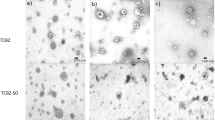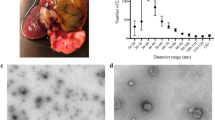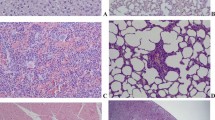Abstract
THE process of excystment of the metacercariæ of digenetic trematodes has not been examined in great detail. Most experimental work so far has been concentrated on the effect of artificial gastric and intestinal juices.
This is a preview of subscription content, access via your institution
Access options
Subscribe to this journal
Receive 51 print issues and online access
$199.00 per year
only $3.90 per issue
Buy this article
- Purchase on Springer Link
- Instant access to full article PDF
Prices may be subject to local taxes which are calculated during checkout
Similar content being viewed by others
References
Rogers, W. P., Nature, 181, 1410 (1958).
Fairbairn, D., in Host Influence on Parasite Physiology, edit. by Stauber, L. A. (Rutgers Univ. Press, New Brunswick, 1960).
Smyth, J. D., Proc. Roy. Soc., B, 156, 553 (1962).
Author information
Authors and Affiliations
Rights and permissions
About this article
Cite this article
DIXON, K. Excystment of Metacercariæ of Fasciola hepatica L. in vitro. Nature 202, 1240–1241 (1964). https://doi.org/10.1038/2021240b0
Issue Date:
DOI: https://doi.org/10.1038/2021240b0
This article is cited by
-
Studies on the excystment of trematode metacercariae in vitro
Zeitschrift f�r Parasitenkunde (1975)
-
Studies on the action of some enzymes on the cyst wall of isolated metacerkariae from the liver fluke,Fasciola hepatica L
Experientia (1965)
Comments
By submitting a comment you agree to abide by our Terms and Community Guidelines. If you find something abusive or that does not comply with our terms or guidelines please flag it as inappropriate.



